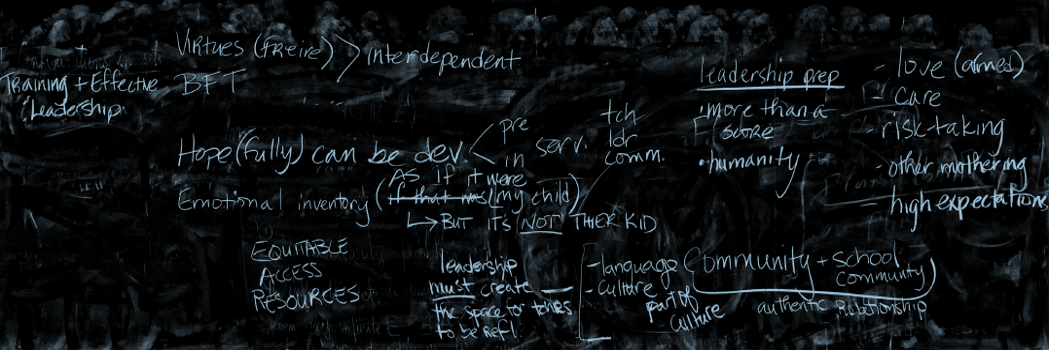This weeks’ materials were very validating for me because I have been skeptical of integration for quite some time. I don’t trust it. At least not at face value. It has to prove itself more if I am going to trust it. I was a young person of color who attended a mostly white high school (that had only recently started to begrudgingly let students of color from around the city attend). So my lived experience will tell ya that integration can be shit. Like yeah I got good at school, but the racial trauma of being at an “integrated” school is NO JOKE. So I really appreciated that the Whose Integration article complicated this idea of integration as panacea. We must shift the metrics that we use to to define success in school. Sure, test scores increase when we integrate schools. But are we checking student well-being? Are we checking care and teacher relationships? Are we measuring student comfort and school climate? Not as much as we should be. This article added even more nuance to this discussion though. We also can’t just pretend the world is not multiracial, multiethnic, and global. It wouldn’t make sense to have single-race schools either.
Both of our readings this week have me thinking about the future of schools. What are the next steps to implementing radical care in schools across the country? From the young boys in the hood to the country boys on the farm. Can integration lead to radical care for all? What more does integration need to be what we want it to be?




I really appreciated your post, August, and especially these questions – “But are we checking student well-being? Are we checking care and teacher relationships? Are we measuring student comfort and school climate?” What if those were always what we were checking to see if schools were “working”?
And then who gets to do the checking? Are students getting to say exactly how they feel about their own well-being, their sense of care, or will it be “measured” in ways that filtered through problematic gazes or flattened down to numbers or interpretations of what someone else is experiencing?